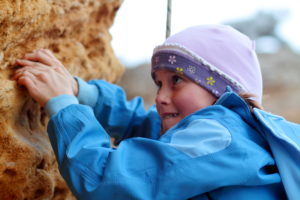Paul Tough is the author of a new book, How Children Succeed and he was also the key-note speaker at the B.C. School Superintendents Association Spring Conference. It is an inspiring book which thoroughly investigates through research reviews, interviews and observation, the character traits which are most likely linked to our children reaching their potential.
Stress and the Prefrontal Cortex
The Prefrontal Cortex is most affected by stress which ultimately impacts one’s ability to regulate emotions and higher-order mental abilities known as executive functions. Generally, children who grow up in stressful environments, have more difficulties concentrating, sitting still, bouncing back from disappointment and following directions.
However, the good news is that the prefrontal cortex is much more responsive to intervention and is still going through a lot of growth in adolescence and early adulthood. Therefore a positive change in a child’s environment, which increases executive functioning skills, can also increase the likelihood of leading a successful life. By remaining calm even when our children have “flipped out” we are teaching and mirroring executive functioning skills.
The Anti-dote to Stress: Attachment
Nowadays many parents are more aware of the importance of having a strong relationship with their children. In this book, Tough summarizes the research which links strong attachment to greater resilience to handle adversity. In lab experiments with rats, the researchers found time after time that the rats who had experienced the most licking and grooming excelled at mazes, were more social, curious, less aggressive, healthier, lived longer and had more self-control. Their results were based on behavioural measures as well as biological measures – the rats who experienced lots of licking and grooming had more developed brains in the specific areas that regulate stress.
The results were confirmed in children too. Pre-school children whose parents had responded most sensitively to their emotions as infants, were the most self-reliant at ages 3 and 4 years. In my opinion, this is where Attachment Theory (and the many parenting books written on Attachment) has done an excellent job of outlining the importance and the strategies for developing the first of the first Adlerian “C”s: Connection.
External Motivation vs. Internal Motivation
Tough also goes into great detail describing KIPP (Knowledge is Power Program) schools in the United States. These are College Preparatory Schools which are set up for disadvantaged youth. They attend school for longer hours and follow a strict program with the end goal of attending a post-secondary institution.
Research showed that these schools have been very successful at increasing the percentage of students attending college but the statistics were much lower than expected for students staying in the program and completing college (only 30% of KIPP graduates who went on to college actually completed a four year program).
Tom Brunzell, who was the dean of students at KIPP Infinity Middle School, first came to the school as a critic for it’s externally controlled system of discipline. He wrote that
Infinity’s compliance-based system models an atmosphere of punitive dependence which ultimately negates student decision-making…Students often demonstrated the shallowest kind of good conduct – not contemplating in a deep way the consequences of their actions but ostentatiously behaving well when teachers were watching and then trying to get away with as much as possible as soon as the teachers’ backs were turned. (p.88)
The external, controlling behaviourism model was working in the short-term but not for as many students as was hoped in the long term. Brunzell become very involved with character development and the use of CBT (Cognitive Behavioural Therapy) to teach the meta-cognitive skills of recognizing negative thoughts and being able to see things from a more positive perspective. Character report cards were created and after much discussion the following seven character strengths were identified.
What Seven Character Strengths Are Most Important?
- grit
- self-control
- zest
- social intelligence
- gratitude
- optimism
- curiosity
My 6 Top Apps for Creating More Calm for You and Your Children!
Want to Connect?
Subscribe now to receive free weekly parenting tips and inspiration.








